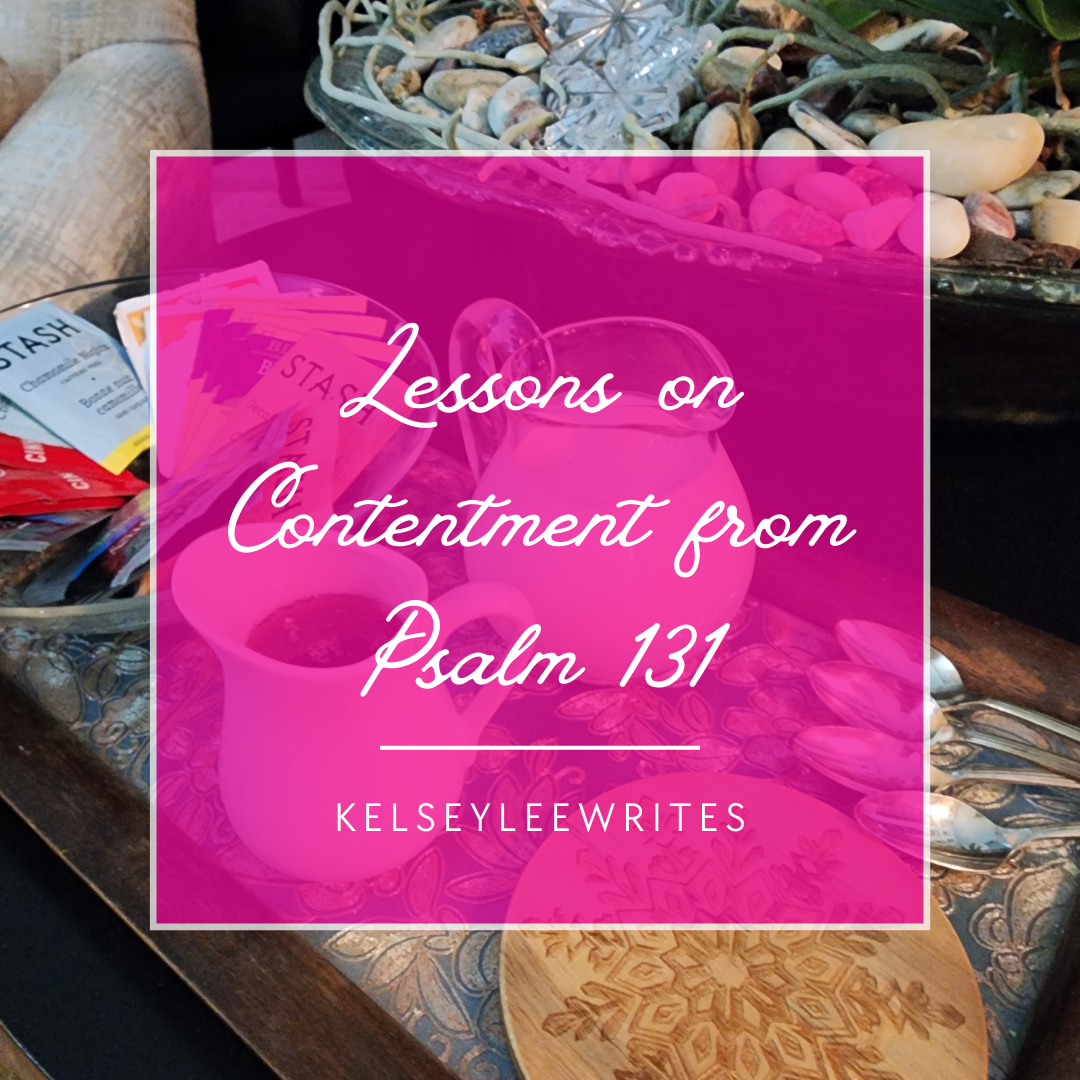
Lessons on Contentment from Psalm 131
A friend gifted me a Bible journal this summer for Psalms 120-150. I’ve loved taking the time to slowly read through each psalm as I write it and ponder the words. Today I wrote out Psalm 131. I’ve read it many times, but today it impacted me differently than ever before.
O Lord, my heart is not proud, nor my eyes haughty; Nor do I involve myself in great matters, Or in things too difficult for me. Surely I have composed and quieted my soul; Like a weaned child rests against his mother, My soul is like a weaned child within me. O Israel, hope in the Lord From this time forth and forever. Psalm 131:1-3 (NASB95)
These past six months, I’ve been praying for the Lord to teach me contentment. I’m not where I envisioned myself being at this point in my life. I never saw myself living in Oregon past my college years or being single at 24. I always saw myself as a stay-at-home mother at this point in my life, but instead the Lord has opened many doors for me here in Oregon through ministry at my church and at my daycare work. Even now, I’m praying about an opportunity that has been set before me, asking the Lord for His guidance in my decision-making. But even while this opportunity is exciting to me, it’s not what I expected for this point in my life. The Lord’s hand has been so evident in directing me this past year, and yet I still struggle with contentment and joy in this season.
And that’s why Psalm 131 stood out to me. It speaks so much about contentment. Working with infants made the imagery of a child leaning against his mother stand out to me. I’ve never had my own babies, but I’ve had children at the daycare lean on me when they’re tired and come to me for comfort when they have owwies. I’ve had kids sit on my lap while I clean toys, happy to just sit for a while before getting up to run around again. And it’s given me a new perspective for this childlike contentment. Children run to where they feel safe when they are tired or hurt. And most often, that safe space is mom or dad. At the daycare they run to the teachers. Do I run to my heavenly Father in the same way? Do I go to Him when I’m hurt, worn out, or just to enjoy His presence? Do I rest in Him, having complete confidence in Him because I know He is good?
The other thing that stood out to me from this psalm is the phrase, “nor do I involve myself in great matters, or in things too difficult for me.” The Hebrew for difficult is pālā’, which can mean marvelous, extraordinary, difficult, or beyond one’s power.1 In fact, it’s the same word used to describe God’s miracles in Egypt:
So I will stretch out My hand and strike Egypt with all My miracles which I shall do in the midst of it; and after that he will let you go. Exodus 3:20 (emphasis added)
David, the author of Psalm 131, says that he doesn’t involve himself in things too difficult for him, in things marvelous, extraordinary, difficult, or beyond his power. In other words, David is letting God be the miracle-worker.
This understanding of pālā’ was a reminder to me that I am not a miracle-worker. I do not need to push myself to do great things, to leave my mark on the world, to make my name great, or to do things that God hasn’t called me to do. This is not to say that as believers we should take it easy and leave all the work up to God. No, for we are God’s instruments of righteousness in the world, called to carry the good news to those around us (Rom. 6:13; Matt. 28:19-20). We are to be ready to say “yes” to God’s call, just like Isaiah:
Then I heard the voice of the Lord, saying, “Whom shall I send, and who will go for Us?” Then I said, “Here am I. Send me!” Isaiah 6:8
God will equip us for whatever He calls us to do, just as He promised Paul that His grace was sufficient for Paul’s weakness (see 2 Cor. 12:9-10). But we don’t need to stress over the results or the things that God hasn’t called us to do. After all, He is God, He is the miracle-worker, and we are not. To try and carry any yoke that Christ hasn’t given me is to believe that I know better or am stronger than God (what a foolish thought!).
I can rest in God’s loving embrace and place my full hope and trust in Him because He is a miracle worker. And this rest in God’s strength and sovereignty is what contentment looks like.
Not that I speak from want, for I have learned to be content in whatever circumstances I am. I know how to get along with humble means, and I also know how to live in prosperity; in any and every circumstance I have learned the secret of being filled and going hungry, both of having abundance and suffering need. I can do all things through Him who strengthens me. Philippians 4:11-13
May we learn to rest in God’s arms, content to obey whatever He calls us to do. And may we be confident that His strength and His grace will carry us through.
With love,
Kelsey
Reference:
1: “H6381 – pālā’ – Strong’s Hebrew Lexicon (nasb95).” Blue Letter Bible. Web. 3 Jan, 2024. <https://www.blueletterbible.org/lexicon/h6381/nasb95/wlc/0-1/>.





